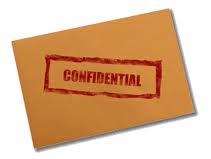A DUI arrest often results in the prosecuting authority filing official charges in the San Diego Superior Court. The most common driving under the influence charges involving an alcoholic beverage or drug, or a combination of an alcoholic beverage and a drug, does not involve an accident, personal injury or property damage, and is filed as a misdemeanor under California Vehicle Code Section 23152 (a) & (b).
Once the case is filed, the DUI defendant is given notice of an arraignment date. At the arraignment or the first hearing, (the Readiness Hearing), the defendant or his or her DUI attorney and the prosecutor will negotiate the case. If the blood or breath test was around a .10% or if the prosecuting attorney believes there are problems with their case, the offer may be for a lesser included charge called a wet reckless.
If the driving under the influence defendant wants to accept the deal and enter a guilty plea to the wet reckless, the judge will either order the 3-month First Conviction Program or the 12-hour, education only program as a condition of DUI probation. If the blood alcohol content was below a .08% or showed a positive for drugs, the 12-hour class will be ordered. If the blood alcohol was at or above a .08%, the 3-month program will be ordered.
In order to comply with the court ordered first conviction program, the defendant must attend a court approved program. These can be found on the San Diego Court’s website. This course costs $190.00 and includes:
• Six education classes, 1 class per week, 2 hours per class.
Defendant’s should be cautious with the interaction between this criminal court process and the DMV administrative process, as the DMV may require the licensee enroll in a different program to be eligible for a restricted license or to have the driver’s license reissued. The most confusing issues for DUI defendants revolve around the interaction between the DMV and the court consequences and the defendant’s driving privileges. For the most up to date information, contact a criminal defense lawyer in your area that exclusively deals with drunk driving matters.
The above blog article is by no means all-inclusive and is not legal advice. Laws may change and may not apply to your case. For the latest information or to get legal advice, speak to a DUI attorney in your area.
 San Diego DUI Lawyers Blog
San Diego DUI Lawyers Blog


 In the San Diego courts, if you plead guilty or you are convicted of a
In the San Diego courts, if you plead guilty or you are convicted of a  Under the California Vehicle Code, “It is unlawful for any person who is under the influence of any alcoholic beverage or drug, or under the combined influence of any alcoholic beverage and drug, to drive a vehicle.” (See
Under the California Vehicle Code, “It is unlawful for any person who is under the influence of any alcoholic beverage or drug, or under the combined influence of any alcoholic beverage and drug, to drive a vehicle.” (See 



 Once a
Once a  A driver is arrested in San Diego County and is charged with
A driver is arrested in San Diego County and is charged with